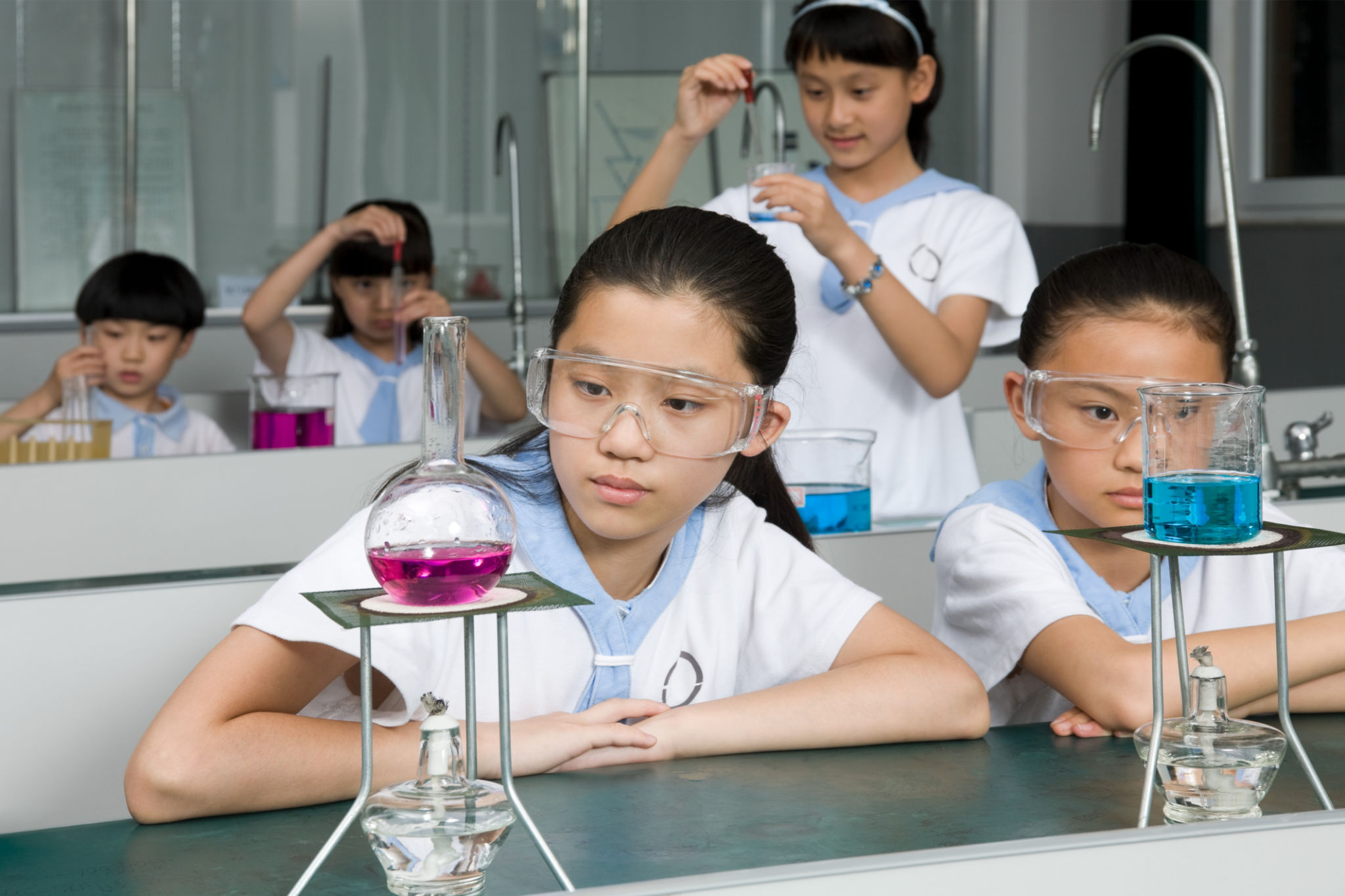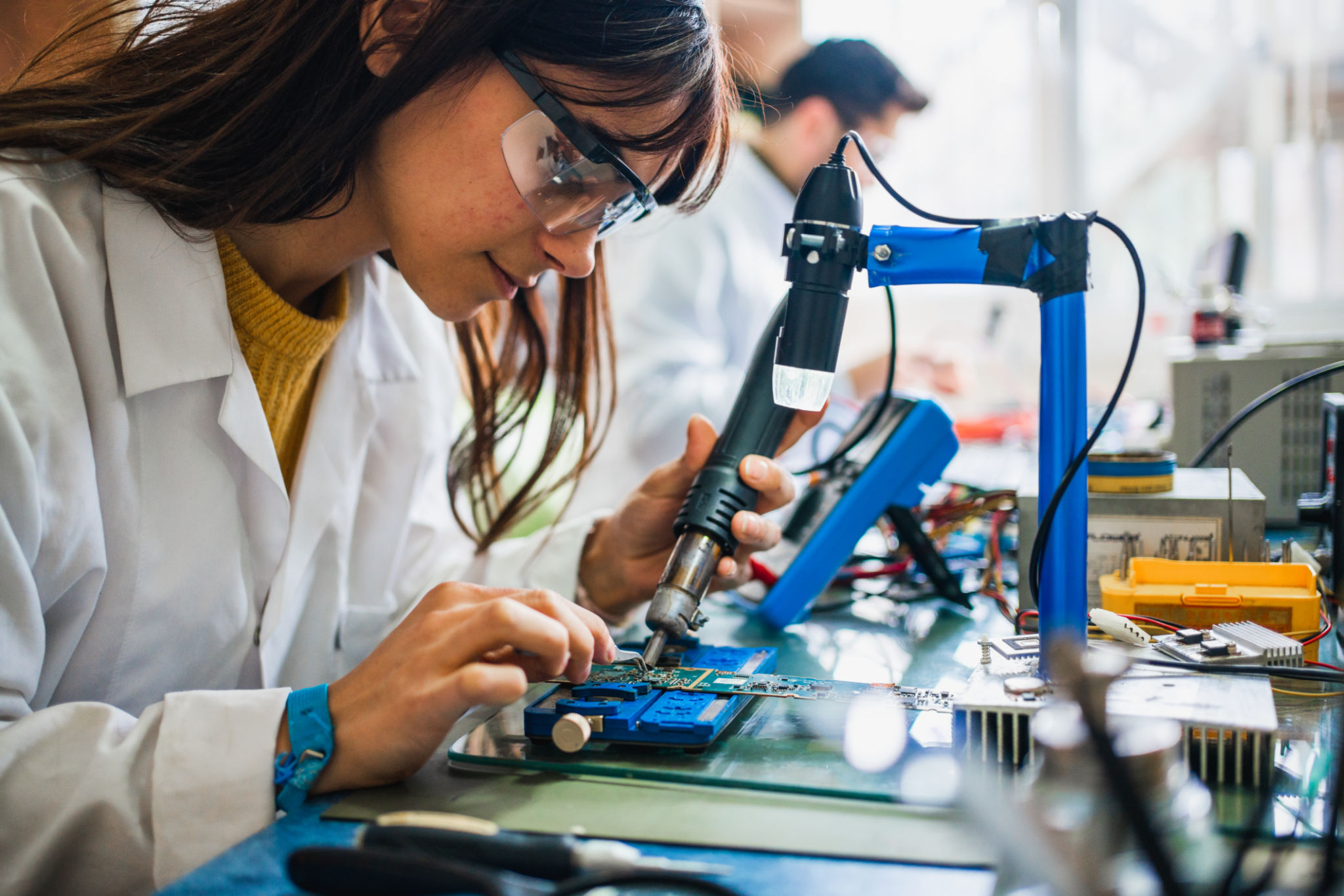Understanding the Latest Trends in Science Education
Embracing Technology in Science Education
In recent years, there has been a significant shift towards integrating technology within science education. This trend is driven by the need to prepare students for a future where digital literacy is essential. From virtual labs to interactive simulations, technology is transforming how students interact with scientific concepts. These tools not only make learning more engaging but also allow for a deeper understanding of complex topics.
One of the most notable advancements is the use of augmented reality (AR) and virtual reality (VR) in classrooms. These technologies provide immersive experiences that can transport students to different environments, such as exploring the human body or walking on Mars. By engaging multiple senses, AR and VR can enhance retention and comprehension.

Inquiry-Based Learning
Another trend gaining momentum is inquiry-based learning, which emphasizes student-driven exploration and questioning. This approach encourages learners to develop critical thinking skills by engaging in hands-on activities and experiments. Instead of passively receiving information, students take an active role in their learning process, fostering a deeper connection to scientific principles.
Teachers adopting this method often use open-ended questions and real-world problems to spark curiosity. By allowing students to investigate and draw conclusions, inquiry-based learning aligns well with the natural curiosity inherent in scientific study. It also promotes collaboration as students work together to solve challenges.

Focus on STEM Education
The importance of STEM (Science, Technology, Engineering, and Mathematics) education continues to rise as industries worldwide seek skilled professionals in these fields. Educational institutions are responding by enhancing their curricula to include more STEM-focused content. This shift aims to prepare students for careers in rapidly evolving sectors such as biotechnology, renewable energy, and artificial intelligence.
Moreover, many schools are establishing partnerships with businesses and research organizations to provide real-world experiences. Internships, mentorship programs, and collaborative projects allow students to apply classroom knowledge in practical settings, bridging the gap between education and industry demands.

Personalized Learning Approaches
Personalized learning is another trend reshaping science education. This approach tailors instruction to meet the unique needs, strengths, and interests of each student. With the help of data analytics and adaptive learning technologies, educators can create customized learning paths that optimize student success.
By focusing on individual progress, personalized learning helps address diverse learning styles and paces within the classroom. It also empowers students to take ownership of their education, setting personal goals and tracking their achievements.
Environmental Science Awareness
In response to global challenges such as climate change and biodiversity loss, there is a growing emphasis on environmental science education. Schools are integrating sustainability topics into their curricula, encouraging students to become environmentally conscious citizens.
Projects focused on conservation efforts, renewable energy solutions, and ecological impact assessments are becoming common. By instilling a sense of responsibility for the planet, educators hope to inspire the next generation of environmental stewards.

Conclusion
The landscape of science education is continually evolving to meet the demands of a changing world. By embracing technology, fostering inquiry, emphasizing STEM, personalizing learning, and promoting environmental awareness, educators are equipping students with the tools they need for future success. As these trends continue to develop, they promise to make science education more dynamic and relevant than ever before.